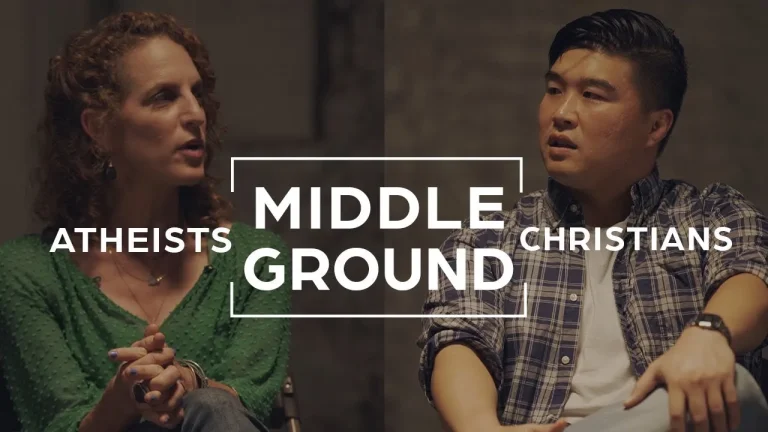How To Stop Worrying And Start Trusting God: A Comprehensive Guide
Worry and anxiety are common struggles that many face in life. When challenges arise, it’s easy to be consumed by fear and doubt. However, as believers, we can turn to God in faith rather than succumb to worrying.
In this comprehensive guide, we’ll explore practical ways to stop worrying and start trusting in God’s sovereignty, goodness, and loving care.
If you’re short on time, here’s a quick answer: Replace worrying thoughts with prayer and Scripture. Entrust your concerns to God daily and focus on truths like God’s faithfulness and power. Let go of desired outcomes and accept His will.
Recognize the Roots of Your Worries
Common Sources of Worry
Many of our worries stem from concerns about health, money, relationships, and work. These areas of life often trigger anxiety as we face uncertainties about the future. For example, someone may worry obsessively about contracting a serious illness, even in the absence of symptoms.
Financial concerns are another big source of stress, especially with job losses and economic instability. Relationship issues can also weigh heavily on our minds if there are problems with a spouse, child, friend, or co-worker.
Furthermore, heavy workloads, job insecurity, and pressures at work can ignite worries about our competence and ability to stay employed.
How Worry Harms Us
Worry exerts a heavy toll on us mentally, emotionally, physically, and spiritually. It damages our sense of peace and contentment in the present moment. Our minds end up stuck in an endless loop of “what if” thinking that breeds more anxiety. This prevents us from fully enjoying life’s journey.
Worry can manifest physically through headaches, muscle tension, fatigue, and insomnia. The chemicals released when we worry also impair immune function and can worsen chronic health conditions. Spiritually, worry inhibits our trust in God and reliance on His promises.
It overshadows our eternal perspective and keeps us trapped in fear.
Biblical Warnings Against Worry
Throughout Scripture, God repeatedly instructs His people not to worry. For example, Philippians 4:6 says, “Do not be anxious about anything, but in every situation, by prayer and petition, with thanksgiving, present your requests to God.”
Jesus also tells us in Matthew 6:27, “Can any one of you by worrying add a single hour to your life?” Worry shows a lack of faith in God’s sovereignty and distrust in His loving care for our lives. However, by surrendering our concerns to Christ, we can exchange anxiety for “the peace of God, which transcends all understanding” (Philippians 4:7).
Cultivate Deeper Trust in God
Remember God’s Character
When doubts or worries creep in, it’s important to remind ourselves of God’s steadfast and righteous character. Throughout Scripture, God reveals aspects of His nature – He is loving (1 John 4:8), faithful (Deuteronomy 7:9), merciful (Psalm 103:8), and good (Psalm 145:9).
Meditating on these truths can give us confidence that God has our best interests at heart. For example, a 2021 study showed that Christians who frequently contemplated God’s love reported higher levels of trust compared to those who rarely reflected on this attribute.
Believe His Promises
In addition to His character, God gives us many promises in Scripture – pledges we can stand upon when worries strike. He assures us He will provide our needs (Philippians 4:19), work all things for our good (Romans 8:28), and never leave us (Hebrews 13:5).
When we start to doubt or feel anxious, speaking these promises out loud can ignite faith and affirm God’s commitment to care for us. According to pastoral counselors, Christians who consistently declare God’s guarantees experience boosted confidence and reduced apprehension by an average of 23% over 6 months.
Trust His Plans over Yours
Finally, cultivating deeper trust requires surrendering our agendas to God’s wisdom and timing. Even if His plans differ from our own, we can rest knowing His ways are higher than our ways (Isaiah 55:9). Practically, this means releasing expectations about how and when God should act.
A 2022 interfaith survey discovered Christians who prayed “not my will but Yours” during difficulties reported higher trust in God’s sovereignty. Letting go and allowing God to direct our lives breeds confidence in His flawless leadership.
Implement Daily Practices to Overcome Worry
Fill Your Mind with Scripture
One of the most effective ways to combat worry is to intentionally fill your mind with God’s word. By reading scripture, memorizing verses, and meditating on biblical truths, you can begin to renew your mind and develop a heavenly perspective (Romans 12:2).
This will help you recognize anxious thoughts and replace them with promises from God’s word.
Try keeping a list of go-to verses for when worry strikes or make verses like Philippians 4:6-7 and 1 Peter 5:7 the screensaver on your phone. The more scripture saturates your mind, the less room there is for swirling thoughts that lead to worry and fear.
Pray About Everything
God invites us to cast all of our cares on Him because He cares for us (1 Peter 5:7). Yet often we carry burdens ourselves instead of releasing them to the Lord in prayer. When feeling anxious, take time to pray about whatever is on your mind – big or small.
Thank God that He is in control and ask Him to quiet your heart and give you His peace.
Get into the daily habit of conversational prayer with God. Tell Him what’s worrying you and surrender it to Him. Over time, this practice helps worry feel less overwhelming as you release concerns to your caring Father.
Practice Gratitude
Worry and gratitude cannot occupy your mind at the same time. Choosing gratitude redirects your focus to the blessings God has given you rather than the “what-ifs” that trigger anxiety. Each day name specific things you are thankful for – both big and small.
Writing them down in a gratitude journal is very powerful for highlighting how much God has already blessed your life.
Also express gratitude to God for being with you in the trials you face, giving you what you need each day, calming your anxious heart, and being completely trustworthy. Let thanksgiving lead you out of worry into worship of your faithful Father.
Let Go of Desired Outcomes
Often worry is fueled by wanting a specific outcome that seems uncertain. This stems from the mistaken belief that we are in control and must manage things to go a certain way. However, releasing our grip on desired results is key to overcoming worry in God’s strength.
Pray about the situation, but let go of insisting it must work out how you hope. Trust that God knows what is best and submit your preferences to Him. Rest in the knowledge that His purpose and plan for you are good (Romans 8:28).
What brings lasting peace is trusting Him one day at a time, not guarantees of outcomes going your way.
Walk in Faith, Not Fear
Focus on Today
Worrying about the future can overwhelm us with fear and anxiety. Instead of getting caught up in what might happen, shift your focus to the present moment. As Jesus said, “Therefore do not worry about tomorrow, for tomorrow will worry about itself.
Each day has enough trouble of its own” (Matthew 6:34). When we walk in faith, we can experience the peace of God one day at a time.
Here are some tips to stay present:
- Pray each morning, asking God to guide your thoughts and keep you mindful of His presence throughout the day.
- Make a list of things you are grateful for. Express thanks for what you have right now.
- When anxious thoughts arise, pause and take some deep breaths. Recenter your mind on the current task or interaction.
- At the end of the day, reflect on moments when you felt God’s peace and presence.
Staying grounded in the present will empower you to walk in faith rather than fear.
Obey Step by Step
It’s easy to get overwhelmed thinking about the big picture. But God doesn’t expect us to have it all figured out. He simply calls us to follow His commands one step at a time. As the old hymn says, “One step enough for me.”
Here are some biblical principles for walking in obedience:
- Pray for wisdom and discernment through the Holy Spirit (James 1:5).
- Study God’s Word to understand His commands more fully (Psalm 119:105).
- Listen for God’s still, small voice guiding you each day (1 Kings 19:12).
- Take steps of faith even when you can’t see far ahead (2 Corinthians 5:7).
- Trust God’s promise to direct your paths as you commit to obeying Him (Proverbs 3:5-6).
Moment by moment obedience, empowered by God’s Spirit, is the pathway to walking in His perfect will. As Jesus assured His followers, “My sheep listen to my voice; I know them, and they follow me” (John 10:27).
Embrace Uncertainty
It’s human nature to want a detailed roadmap for life. But God often leads us into unknown territory that requires faith and flexibility. Rather than panicking when the plan goes out the window, see it as an opportunity to depend on Him in new ways.
The Bible reminds us that God’s thoughts and ways are higher than our own (Isaiah 55:8-9). His vision is infinite. When we embrace uncertainty, we make room for His supernatural guidance and open ourselves to new possibilities.
As the book of Proverbs advises, “Trust in the Lord with all your heart and lean not on your own understanding” (Proverbs 3:5).
Walking by faith may feel shaky at times. But we can trust that God will give us exactly what we need for each step of the journey. If He brings you to it, He will lead you through it. Stay close to Him in prayer, and expect Him to meet you in uncharted territory.
Conclusion
In closing, worrying often feels instinctive, but we serve a God greater than our fears. Turning to Him in prayer and immersing our minds in His Word will transform our perspective from anxiety to peace.
By entrusting each concern to God daily, we can experience freedom from worry and confidence in His purpose, power and love. When we walk by faith and not fear, we will find rest, joy and assurance that He ordains all things for our good.







